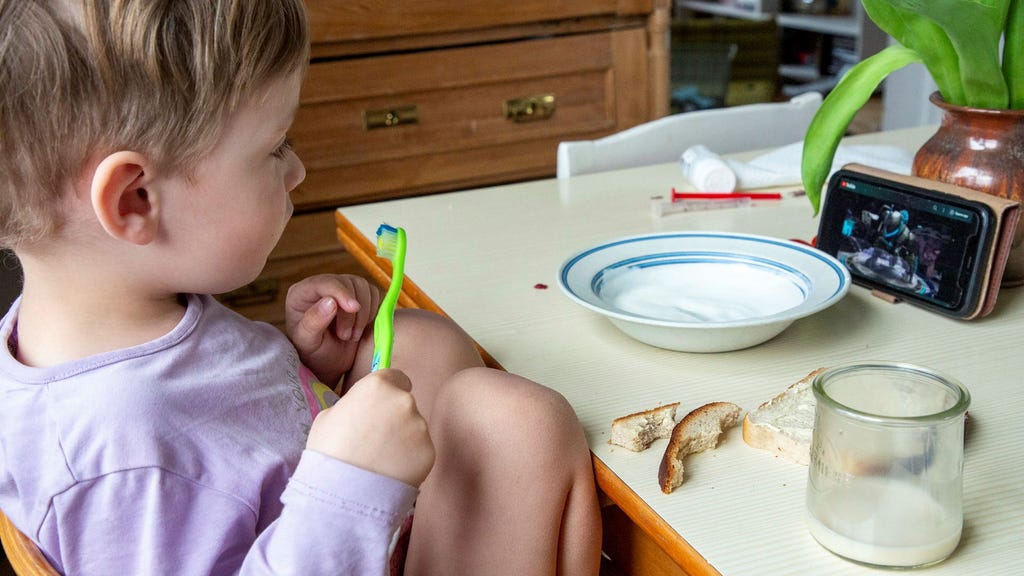The Swedish Public Health Agency’s new recommendation of limiting screen time for preschoolers to a maximum of one hour per day has sparked a complex emotional response in many parents. While acknowledging the benefits of reduced screen time for children’s health and development, there’s a palpable undercurrent of irritation towards this seemingly well-intentioned guideline. This reaction stems from various factors, including the perceived intrusion on parental autonomy, the practical challenges of implementing such restrictions in busy modern lives, and the guilt associated with relying on screens as a childcare tool.
Firstly, the recommendation can be interpreted as an infringement on parental autonomy, dictating how families manage their time and resources. Parents, already juggling multiple responsibilities, may feel burdened by another set of rules imposed by external authorities. They might feel their parenting style is being judged and question the agency’s right to intervene in what they consider a private family matter. This sentiment is amplified by the pervasive societal pressure to conform to idealized parenting standards, adding to the existing stress and self-doubt many parents experience.
Secondly, the practical implications of limiting screen time can be daunting. In today’s fast-paced world, screens often serve as a valuable tool for parents. They can provide a brief respite during busy schedules, a distraction for children during errands, or an educational resource for early learning. Restricting screen time requires finding alternative activities, which can be challenging for working parents or those with limited access to resources like childcare or outdoor play areas. This practical difficulty can fuel resentment towards the recommendation, making it seem impractical and detached from the realities of modern family life.
Moreover, the recommendation can trigger feelings of guilt and inadequacy in parents who rely on screens more extensively. In a culture saturated with messages about ideal parenting, the screen time debate adds another layer of complexity. Parents may worry that they are failing their children by resorting to screens, even when it’s out of necessity. The recommendation can reinforce these anxieties, making parents feel judged and inadequate, especially if they struggle to meet the prescribed limits. This guilt can contribute to the defensive reaction and irritation towards the guidelines.
Furthermore, the debate surrounding screen time often lacks nuance. While excessive screen time undoubtedly has drawbacks, moderate and appropriate usage can also offer benefits. Educational apps, interactive games, and video calls with family can provide valuable learning opportunities and social connections. The blanket recommendation, without acknowledging these potential advantages, can seem overly simplistic and fail to address the diverse ways families utilize technology. This lack of nuance further fuels the negative reaction, making the guideline appear impractical and out of touch.
Additionally, the focus on restricting screen time can overshadow other equally important aspects of children’s well-being. Sufficient sleep, healthy nutrition, physical activity, and social interaction are all crucial for development. Obsessing over screen time can divert attention from these essential factors, leading to a skewed understanding of children’s needs. Parents may feel pressured to meticulously track screen time while neglecting other vital aspects of their children’s health and development. This imbalance can contribute to the frustration with the recommendation, as it seems to prioritize one aspect of well-being over others.
Finally, the discourse surrounding screen time often lacks empathy for the challenges parents face. Instead of offering practical solutions and support, the focus tends to be on judgment and criticism. This creates a hostile environment where parents feel blamed and defensive, rather than empowered to make informed decisions about their children’s technology use. A more compassionate approach that acknowledges the complexities of modern parenting and provides realistic strategies could foster greater receptiveness to the recommendations and ultimately lead to more positive outcomes for children.














